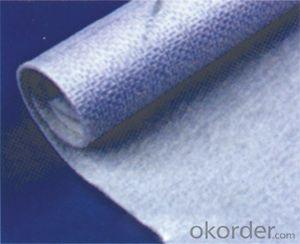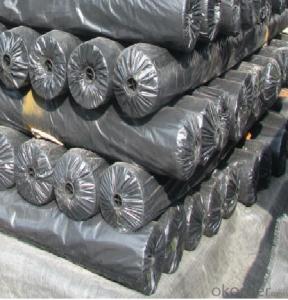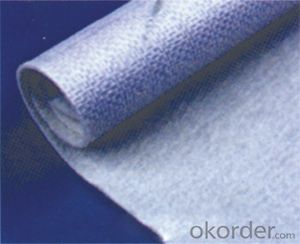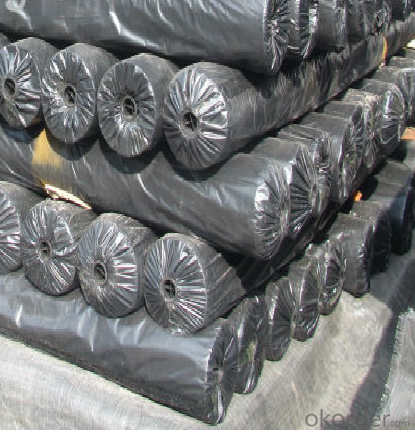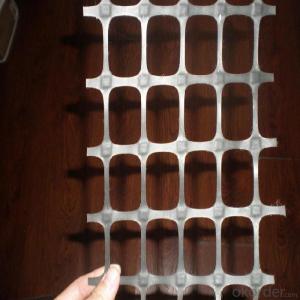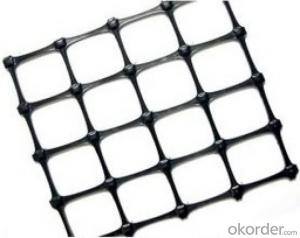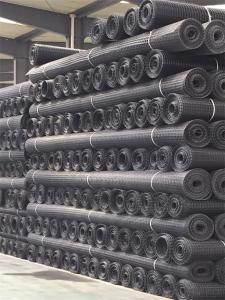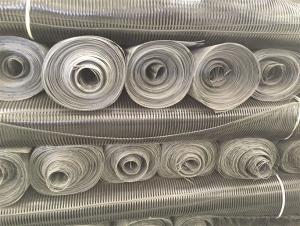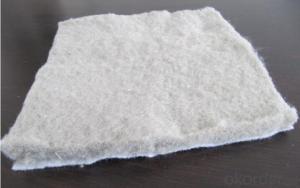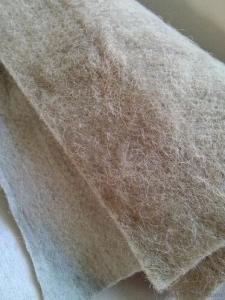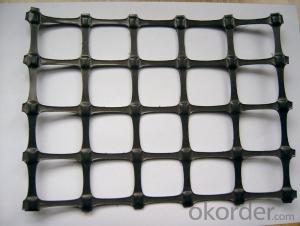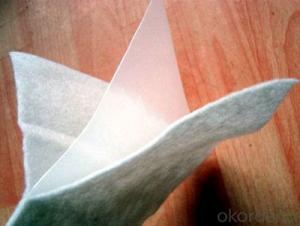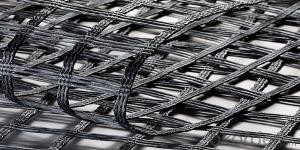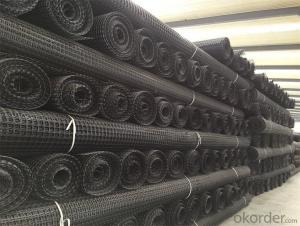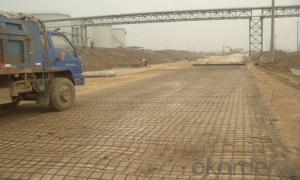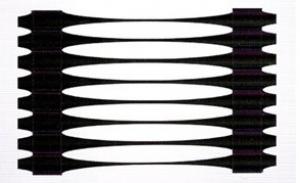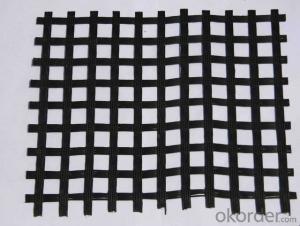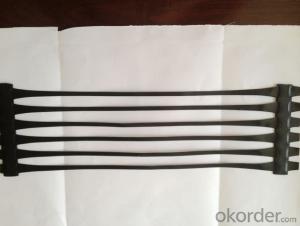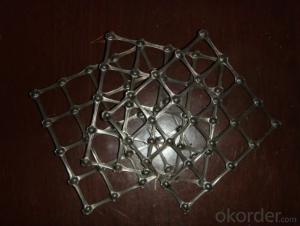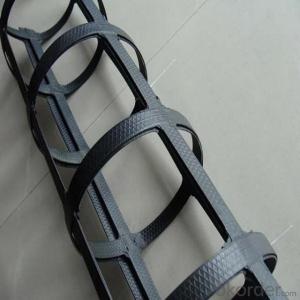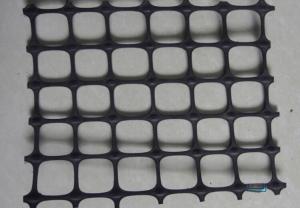Fibreglass Geogrids Reinforced Knitted Civil Construction Composite Geomembrane
- Loading Port:
- Qingdao
- Payment Terms:
- TT OR LC
- Min Order Qty:
- 1000 m
- Supply Capability:
- 50000 m/month
OKorder Service Pledge
OKorder Financial Service
You Might Also Like
Specifications
High strength, anti-corrosion, tearing resistant and bursting resistant.
High strength polyester industrial yarns are adopted and, after treated with PVC laminating process, the geomembranes are abtained. These membranes prevent the permeation of water and change the defects of the current geomembranes with low strength and poor water resistance. As a result, they are widely used in such projects as the railroad foundation, dyke protective slopes, reservoirs, highway greenery belts, etc.
Application
Railroad foundations, tunnels, dykes, reservoirs, garbage filling fields, water-prevention and anti-permeation projects. Anti-seepage works of dyke. And application in anti-seepage works of water canal can save 80% of water.
Features
High strength, anti-corrosion, tearing resistant and bursting resistant.
Technical Parameters of Composite Geomembrane
Specification | PLGM-2020 | |
Performance | ||
Strength (kN/m) | Longitudinal | 20 |
Horizontal | 20 | |
Elogation | 30% | |
CBR strength (KN) | >2.5 | |
Thickness (mm) | >0.3 | |
Penetration coefficient (cm/s) | 10-11 | |
Width (m) | 2.5-3.5 | |
Length (m) | 30-50 | |
Functions
Ground stabilization
Drainage
Erosion control and re-vegetation
Revetment
Ground reinforcement
Asphalt underlayment
Road reinforcement
Features
1) Woven geotextile made on circle weave machine
2) Materials: polypropylene and other imported new materials
3) Weight per square meter: 80-700g/m²
4) Width: max. 6m
5) Perfect flexibility and against ultraviolet radiation and aging.
It can be widely used in areas of railways, highways, sport fields, earthwork projects, tunnels, coal mines, walls and slopes, environmental protection, and so on.
All colors and sizes can be customized.
Applications
1-Construction of roads and other trafficked areas (excluding railways and asphalt inclusion)
2-Construction of railways,
3-Earthworks, foundations and retaining structures,
4-Use in drainage systems,
5-Erosion control works (coastal protection, bank revetments),
6-Construction of reservoirs and dams,
7-Construction of canals,
8-Construction of tunnels and underground structures,
9-Use in solid waste disposals,
10-Use in liquid waste containment projects,
Woven Geotextiles Data Sheet
Item | Testing Method | Unit | ||
Grad Tensile Strength | ASTM-D 4632 | N | 890 | 1405 |
Grab Elongation | ASTM-D 4632 | % | ≤20 | ≤20 |
Puncture Strength | ASTM-D 4833 | N | 400 | 667 |
CBR Puncture | ASTM-D 6241 | N | 3200 | 4800 |
Mullen Burst | ASTM-D 3786 | kPA | 2578 | 4137 |
Trapezoidal Tear | ASTM-D 4533 | N | 500 | 750 |
Apparent Opening Size | ASTM-D 4751 | mm | 0.425 | 0.425 |
Permittivity | ASTM-D 4491 | Sec-1 | 0.05 | 0.05 |
Water Flow Rate | ASTM-D 4491 | 1/m/m2 | 163 | 163 |
UV Resistance | ASTM-D 4355 | % 500hrs | 70 | 70 |
Roll Width | m | 6 | 6 | |
Roll Length | m |
100 | 100 | |
Mass | GSM | 200 | 300
|
- Q: How do geogrids improve the performance of geotextile containers?
- Geogrids improve the performance of geotextile containers by providing additional tensile strength and stability to the structure. They reinforce the geotextile material, preventing it from stretching or sagging under the weight of the contained materials. This enhances the container's ability to retain its shape, withstand external forces, and overall improves its structural integrity.
- Q: Can geogrids be used in reinforcement of foundation soils?
- Yes, geogrids can be used in the reinforcement of foundation soils. Geogrids are commonly employed in civil engineering projects to enhance the stability and load-bearing capacity of soil. They are particularly useful in reinforcing weak or loose soils, preventing soil erosion, and minimizing settling or uneven settlement of structures. By providing tensile strength and distributing loads more evenly, geogrids help improve the performance and longevity of foundations.
- Q: What is the recommended geogrid junction strength?
- The recommended geogrid junction strength varies depending on the specific application and project requirements. It is important to consult with geotechnical engineers or manufacturers to determine the appropriate geogrid junction strength for each unique situation.
- Q: Can geogrids be used in green roof systems?
- Yes, geogrids can be used in green roof systems. Geogrids provide reinforcement and stability to the soil and vegetation layers of a green roof, preventing soil erosion and enhancing the structural integrity of the system. They can help distribute the weight of the green roof evenly, reduce the risk of subsidence, and improve overall performance and longevity.
- Q: Are geogrids resistant to creep deformation?
- Yes, geogrids are generally resistant to creep deformation. Geogrids are engineered materials made from polymers or other durable materials that are designed to provide reinforcement and stability to soil and other materials. They have high tensile strength and low elongation, which helps them resist deformation over time, including creep deformation.
- Q: Can geogrids be used in reinforcement of underground storage facilities for hazardous materials?
- Yes, geogrids can be used in the reinforcement of underground storage facilities for hazardous materials. Geogrids are highly effective in providing soil reinforcement and stabilization, which is crucial for ensuring the structural integrity and safety of underground storage facilities. By enhancing the load-bearing capacity of the surrounding soil, geogrids can help prevent ground movements and potential leaks or ruptures, thereby minimizing the risks associated with storing hazardous materials.
- Q: How are geogrids installed in the field?
- Geogrids are installed in the field by first preparing the subgrade surface, ensuring it is properly compacted and leveled. Then, the geogrid is unrolled and stretched across the prepared area, with overlaps at the edges for proper connection. The geogrid is then secured to the ground using stakes or pins, ensuring it is taut and properly aligned. Finally, the geogrid is covered with the desired fill material, such as soil or aggregate, which is compacted to provide additional stability and load distribution.
- Q: Can geogrids be installed on steep slopes?
- Yes, geogrids can be installed on steep slopes. Geogrids are commonly used in slope stabilization and reinforcement projects, including on steep slopes. They help enhance soil stability and prevent erosion, making them suitable for installation on steeper slopes where erosion and soil instability may be more prominent.
- Q: Can geogrids be used in mechanically stabilized earth walls?
- Yes, geogrids can be used in mechanically stabilized earth walls. Geogrids are commonly used as reinforcements in mechanically stabilized earth walls to improve their stability and strength. They effectively distribute the forces within the soil and reduce potential wall failure.
- Q: What are the quality control measures for geogrid manufacturing?
- Quality control measures for geogrid manufacturing typically include several steps and processes to ensure the product meets the required standards and specifications. These measures may include regular inspections and testing of raw materials, such as polymer resins, to ensure their quality and consistency. During the manufacturing process, strict monitoring is carried out to ensure proper mixing and blending of materials, as well as accurate temperature and pressure controls. Additionally, the geogrids are subject to various tests, including tensile strength, elongation, aperture size, and aperture stability tests, to verify their performance and durability. These quality control measures help ensure that the geogrids produced are of high quality and capable of meeting the intended engineering applications.
Send your message to us
Fibreglass Geogrids Reinforced Knitted Civil Construction Composite Geomembrane
- Loading Port:
- Qingdao
- Payment Terms:
- TT OR LC
- Min Order Qty:
- 1000 m
- Supply Capability:
- 50000 m/month
OKorder Service Pledge
OKorder Financial Service
Similar products
Hot products
Hot Searches
Related keywords
